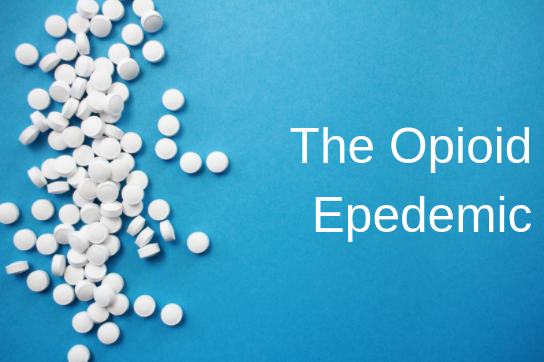The Opioid Epidemic
Opioid related deaths have increased significantly, causing many to take action against the deadly drugs

December 15, 2021
Deaths related to opioids have increased significantly in the last few years, leaving many families grieving the loss of loved ones. According to the Center for Disease Control and Prevention (CDC), between 1999 and 2019, over 500,000 people have lost their lives at the hands of opioids, causing many people to wonder how this has gotten so out of hand, and what the next step is to help those who are struggling.
Although the opioid crisis began in the 1990’s, it has gotten much more serious lately. According to the CDC, more than 11.5 million Americans reported misusing prescription opioids at some point in 2016.
The CDC decided to take action in 2017 and began interviewing many people who suffered from addiction to try and get a firsthand view of what it’s like for them. Tele, a man they interviewed, began using opioids when he was just 13 years old.
“I started using [opioids] when I was 13. I was like, oh, they are prescription opioids so they can’t be that dangerous,” said Tele.
He was arrested and charged with possession of illegal substances. Although many would be upset about getting into legal trouble, Tele is glad that he did. Being arrested led him to begin his recovery process and has ultimately changed his life for the better and gotten him back onto the paths he desired for life.
Beginning the process of recovery isn’t that easy for everyone though. Tamera, another CDC interviewee, lost her career, her home and almost all of her savings due to opioids. She was even forced to part with her son due to how bad her addiction was.
“It took everything that I had. Knowing that I did this to myself, that it could have been prevented, makes it worse. It just takes one,” she said.
While this is a national epidemic, affecting hundreds of thousands of Americans, it still hits close to home. In 2017, nearly 35% of all Nebraska- related drug deaths were due to opioids. This surge in deaths allowed for the state of Nebraska to receive $1.3 million to fight the opioid crisis locally.
“What we’ve done is put in place a prescription drug monitoring program,” said Nebraska Governor Pete Ricketts, in a May 2019 interview with 10-11 News. “In fact we were one of the first states to require all drugs to be put in that program.”
This program alerts doctors when one of their patients may be getting over-prescribed for an opioid. And, although it has helped in some situations, there are still many Nebraskans who are in need of immediate help.
LPS Social worker, Kristi Lange, has seen firsthand the effects that opioids can have on student’s lives. Whether it be from their own addictions, or those of a family member, having resources and safe places to talk can be beneficial, and even life- changing, to many.
“LPS partners with a few agencies in town who can provide in-school, substance use specific therapy,” Lange said.
The opioid epidemic’s increasing seriousness has also prompted Lincoln Public Schools (LPS) to take action and partner with agencies that are able to help students who may be going through something opioid related. One of those agencies is known as ‘Stepping Stones’- a treatment program that gives teenagers services to help with emotional problems and substance abuse.
Stepping Stones found in a study that 89% of people who could benefit from substance abuse treatment, are not receiving it. The programs LPS has put into place should be able to help lower that number.
Another way that LPS is helping is by connecting students with substance abuse support teams. They use a therapy called psychosocial education. This provides people with education about the mental and physical impacts that drug misuse can have.
“We can do brief interventions… we talk about values and what’s motivating them to want to use [opioids],” said Lange.
A lot of people use drugs as a way to get rid of negative thoughts and feelings. So being able to talk to understanding adults about those feelings can truly help many students.
“If they’re trying to suppress a negative feeling, or if they’ve experienced trauma, sometimes a way to numb those intense negative feelings is to use [drugs] instead,” Lange said.
In addition to all of the agencies LPS has teamed up with and the programs they’ve put into place, LPS also has several social workers available to help students when they need it most. One of Lincoln Southeast High School (LSE)’s social workers, Morgan Young, talks to students that are struggling and refers them to these programs in hopes that it will help them with ending their substance abuse.
“Sometimes students might be using substances to medicate or treat their mental health,” Young said.
There is a lot of work that still needs to be done, and there are a lot of people out there that still need help. However, LPS is doing everything they can to help their students overcome addiction. One step at a time.







